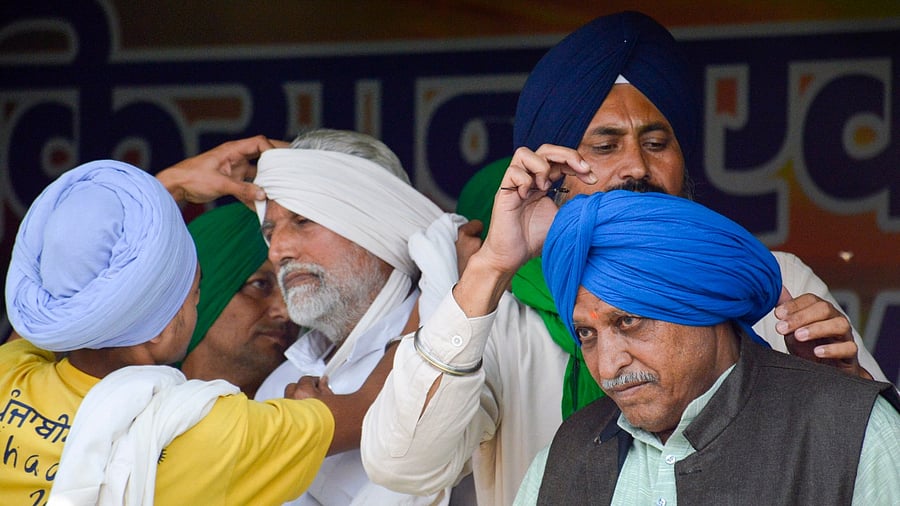
Donning traditional turbans and singing songs of the peasant movement, farmers protesting at Delhi borders against the three agricultural laws on Tuesday marked the “Pagdi Sambhal Divas”.
Called by the Samyukta Kisan Morcha (SKM), the day-long event was inspired by the “Pagdi Sambhal Lehar” of 1906.
“At that time also, the government had passed three anti-farmer laws against which the peasant movement started and it was successful. The unity of the farmers proves that this movement will also be successful,” an SKM statement said.
Once turban used to be pride of the farmer, but the government has forced farmers to use turban for hanging, farmer leaders said, adding that the day was observed to “express their self-respect”.
At the Singhu border, cultural programmes were held, which were attended by the family members of the revolutionary Bhagat Singh, including his nephew Abhay Sandhu.
While addressing the farmers, Sandhu said he would observe a fast unto death if the government did not accept the demands of the farmers by March 23 (Bhagat Singh’s death anniversary).
Farmers also celebrated the birth anniversary of nationalist and peasant leader Swami Sahajanand Saraswati, by recalling his role in nation-building and mass movements.
At Tikri border, several farmers, largely from Karnataka and Telangana, arrived to join the movement.
“The government repeatedly rejects this movement by calling it a movement of a particular area, rather this movement belongs to the farmers across the country,” the SKM statement said.
"Pagdi Sambhal Divas” was also observed in Nandurbar in Maharashtra, and Bhiwani in Haryana.
Thousands of farmers from different parts of the country, including Punjab and Haryana, have been protesting at multiple Delhi borders against the three farm laws, which they are afraid, will do away with the Minimum Support Price system, leaving them at the mercy of the big private corporations.
While the government has been projecting the laws as agricultural reforms, farmers have been demanding the repeal of the three legislations.